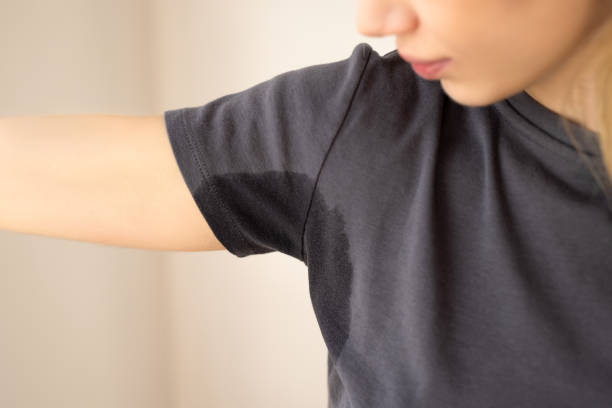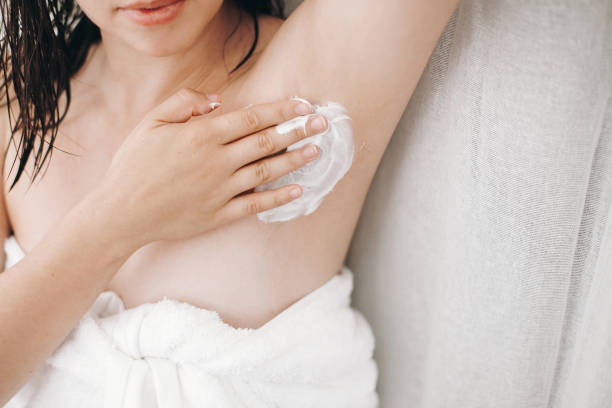
Why Your Antiperspirant Isn't Working and How to Fix It
Antiperspirants are a trusted companion for many who want to tackle sweating and body odor. Still, there are moments when even the most reliable products might not meet our expectations. By uncovering the reasons behind your antiperspirant's less-than-stellar performance, you can gain the knowledge needed to make thoughtful choices and tweaks to your routine. In this article, we'll dive into how antiperspirants work, explore common challenges, identify signs they might not be doing their job, and share some handy tips to boost their effectiveness.
Understanding How Antiperspirants Work
To address issues with antiperspirants, it’s crucial to first understand how they function. Antiperspirants are designed to reduce perspiration by blocking sweat glands.
The Science Behind Sweat
Sweating is a natural bodily function that helps regulate temperature. When your body overheats or experiences stress, sweat glands release moisture to cool you down. This moisture consists predominantly of water, but it also contains salts, proteins, and other substances. Sweat itself is generally odorless; however, when it comes into contact with bacteria on the skin, odors can develop. Interestingly, the amount and composition of sweat can vary significantly from person to person, influenced by factors such as genetics, diet, and overall health. For instance, individuals who consume spicy foods or caffeine may find themselves sweating more profusely due to the stimulating effects of these substances on the sweat glands.
The Role of Antiperspirants
Antiperspirants are designed with aluminum-based compounds that gently block sweat ducts, keeping sweat from reaching the surface of your skin. This helps you stay dry, especially in those areas where sweat can be more noticeable, like your underarms. It’s good to know that antiperspirants work differently from deodorants, which simply mask odors instead of stopping sweat. For the best results with antiperspirants, you should apply them on clean, dry skin, preferably at night. This way, the active ingredients can work their magic while you sleep! Plus, some formulas have lovely skin-soothing ingredients like aloe vera or chamomile, which can help reduce irritation, making them a great choice for sensitive skin types.
Common Reasons Your Antiperspirant Might Not Be Working
If you find that your antiperspirant is not functioning as effectively as it should, consider these potential reasons:
Incorrect Application
Applying antiperspirant properly is essential for optimal performance. Many people rush the process or apply it to damp skin, which can hinder its effectiveness. For best results, antiperspirants should be applied to clean, dry skin before bedtime, allowing the active ingredients to form a protective barrier overnight. Additionally, it’s important to ensure that you’re using the right amount; a thin layer is usually sufficient, as too much product can lead to clumping and reduced efficacy. Remember to allow the product to dry completely before dressing to maximize its performance throughout the day.
Incompatibility with Your Body Chemistry
Everyone's body chemistry is unique. Factors such as skin type, hormonal fluctuations, and diet can impact how your body responds to certain products. If you've switched brands or types and noticed a decline in performance, it’s possible that the new formulation does not align with your body's chemistry. For instance, individuals with sensitive skin may react differently to fragrances or alcohol-based formulas, leading to irritation or reduced effectiveness. It can be beneficial to experiment with different formulations, such as gel, stick, or cream, to find one that complements your skin type and lifestyle.
Lifestyle Factors
Your daily activities and choices also play a significant role in antiperspirant effectiveness. High-stress situations, engaging in strenuous exercise, or exposure to extreme temperatures can increase your sweat production, sometimes overwhelming the capabilities of your antiperspirant. Additionally, medications or health conditions may influence perspiration levels. For example, certain antidepressants or hormonal treatments can lead to increased sweating, making it essential to consult with a healthcare professional if you notice significant changes. Furthermore, dietary choices, such as consuming spicy foods or caffeine, can also trigger sweat glands, which may necessitate a stronger antiperspirant formulation to combat the effects.
Signs Your Antiperspirant Isn't Effective
Recognizing the signs that your antiperspirant is failing to work as intended can help you make necessary adjustments.
Persistent Body Odor
If you consistently notice body odor despite regular application of antiperspirant, this could indicate that the product is not effectively managing sweat and bacteria. It’s a clear sign that you may need to explore other options or methods for odor control. Factors such as diet, stress levels, and hormonal changes can also influence body odor, so it may be beneficial to assess these aspects of your lifestyle. For instance, spicy foods and caffeine can increase sweat production, while stress can trigger sweat glands to become more active, compounding the issue.
Excessive Sweating
Also known as hyperhidrosis, excessive sweating can occur even after using your antiperspirant. If you find yourself sweating more than usual, it might be time to evaluate your product choice and consider consulting a healthcare professional for other treatment options. There are various treatments available, ranging from prescription-strength antiperspirants to more advanced options like Botox injections, which can temporarily block the nerves responsible for sweating. Additionally, lifestyle modifications such as wearing breathable fabrics and practicing relaxation techniques can help manage excessive sweating and improve overall comfort.
Choosing the Right Antiperspirant for You
Finding an antiperspirant that works for you can sometimes require a bit of experimentation. Here are some aspects to consider:
Considering Different Formulations
There are various types of antiperspirants available on the market, including roll-ons, sprays, sticks, and gels. Each formulation has its pros and cons, and what works for one individual might not work for another. For instance, roll-ons may provide a more targeted application, while sprays may be preferable for a quick-drying option. Sticks often offer a more solid feel and can be easier to apply without the risk of overspray, while gels may provide a cooling sensation upon application. It's worth trying a few different types to see which one feels most comfortable for your daily routine, especially if you lead an active lifestyle where sweat management is crucial.
Understanding Ingredients and Their Effects
Paying attention to the ingredient list can be beneficial. Look for antiperspirants with higher concentrations of aluminum chloride, as these are typically more effective. Additionally, watch for possible irritants, especially if you have sensitive skin. Natural or hypoallergenic options may also be worthwhile if traditional products cause irritation. Some antiperspirants also include moisturizing agents like aloe vera or vitamin E, which can help soothe the skin and prevent dryness, making them a good choice for those who experience discomfort from regular use. Furthermore, fragrance can play a significant role in your choice; while some may prefer a fresh scent, others might opt for fragrance-free formulas to avoid potential allergic reactions or sensitivities.
Assessing Your Lifestyle Needs
Your daily activities and lifestyle can greatly influence your choice of antiperspirant. For example, if you engage in high-intensity workouts or spend a lot of time outdoors, you might want a product that offers long-lasting protection against sweat and odor. Conversely, if your day-to-day routine is more sedentary, a lighter formula may suffice. Additionally, consider the climate you live in; those in hotter, more humid environments may require a stronger antiperspirant to combat excessive sweating. It's also important to think about how often you need to reapply throughout the day, as some formulations are designed for all-day wear while others may need to be reapplied after a few hours.

Tips to Improve Antiperspirant Effectiveness
To enhance the effectiveness of your antiperspirant, consider implementing the following strategies:
Proper Application Techniques
- Apply to clean, dry skin in the evening.
- Allow the product to dry completely before dressing.
- Reapply as needed, especially in high-sweat situations.
Timing and Frequency of Use
Timing can greatly influence the efficacy of your antiperspirant. For optimal results, reapply every 24 hours, and consider using a stronger formulation when you anticipate higher levels of sweating, such as on hot days or during vigorous workouts.
Complementary Hygiene Practices
Maintaining good hygiene is essential for maximizing antiperspirant effectiveness. Regularly showering, using antibacterial soaps, and exfoliating the underarm area can help reduce bacteria and improve overall freshness. Additionally, wearing breathable fabrics may aid in moisture control.
Incorporating a daily skincare routine for your underarms can also make a significant difference. Consider using a gentle scrub or a natural exfoliant once or twice a week to remove dead skin cells, which can trap sweat and odor. This not only enhances the performance of your antiperspirant but also promotes healthier skin. Furthermore, be mindful of the products you use post-shower; some lotions or deodorants may contain ingredients that can interfere with the antiperspirant's active components, so choose wisely to maintain optimal effectiveness.
Diet and Hydration
Your diet and hydration levels can also play a role in how well your antiperspirant works. Foods that are rich in antioxidants, such as fruits and vegetables, can help regulate body temperature and reduce sweat production. Staying well-hydrated is equally important, as it helps your body maintain a balanced temperature, potentially reducing the need for excessive sweating. Additionally, consider limiting spicy foods and caffeine, as they can stimulate sweat glands and lead to increased perspiration. By being mindful of your diet, you can support the effectiveness of your antiperspirant while promoting overall wellness.
Conclusion
If your antiperspirant isn’t quite doing its job, it might be due to a few reasons, like how you apply it, your unique body chemistry, or even your lifestyle choices! Picking the right formula and keeping up with good hygiene can really make a difference. Eve Deodorant provides a wonderful natural and effective solution, giving you long-lasting freshness without any harsh chemicals. Consider switching to Eve Deodorant for a healthier, more dependable way to stay dry and odor-free!
